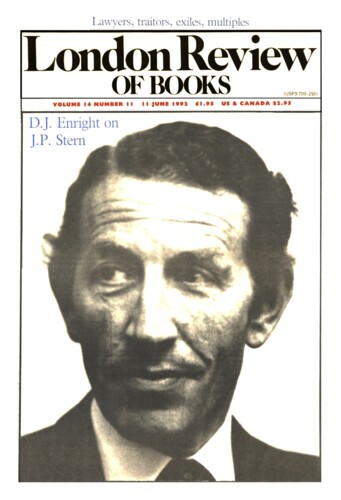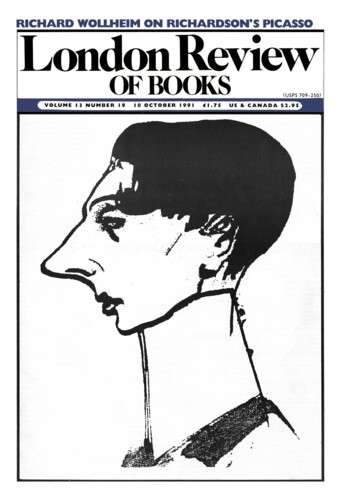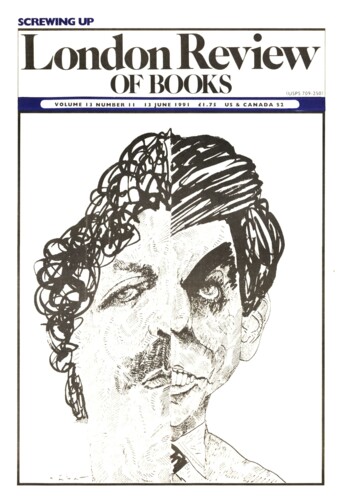Jokes
Donald Davie, 11 June 1992
It seems now that there was always something odd about Peter Robinson’s being the editor, in 1985, of Geoffrey Hill: Essays on His Work, from the Open University Press. Robinson’s sensibility, particularly as one had encountered it in his poems, pointed away from the aloofness of Hill’s attitude to his public, and away from Hill’s lofty and recherché diction, towards something plainer, more demotically awkward, more (the word presented itself) Wordsworthian. Perhaps I’m being wise after the event: at any rate the event –this collection of nine demanding and tough-minded essays –bears me out. Wordsworth is its presiding presence; his poetry is the bar before which other poets –Auden and Eliot, Hardy and Robert Lowell and Browning. Pound and, yes, Hill – are brought to judgment.’’





